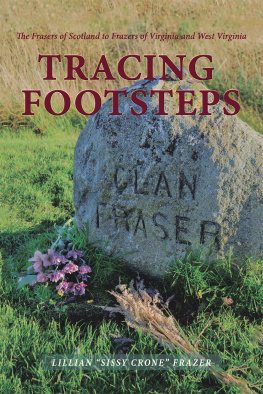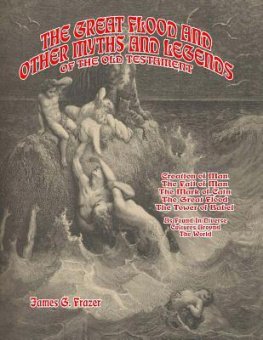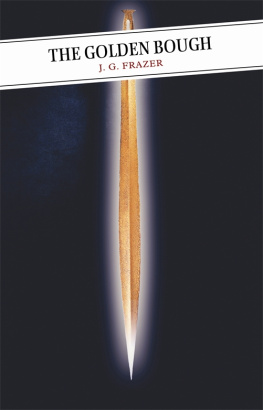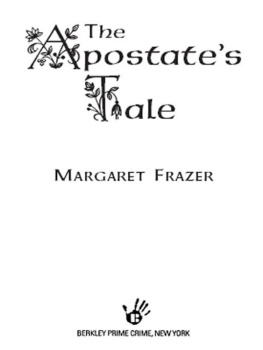MYTHS OF THE ORIGIN OF FIRE
MYTHS OF THE ORIGIN OF FIRE
AN ESSAY
BY
SIR JAMES GEORGE FRAZER
O.M., F.R.S., F.B.A.
FELLOW OF TRINITY COLLEGE, CAMBRIDGE MEMBRE DE LINSTITUT DE FRANCE
Originally Published in 1930
This edition published 1996 by Barnes & Noble, Inc.
Published 2019 by Routledge
2 Park Square, Milton Park, Abingdon, Oxon OX14 4RN
52 Vanderbilt Avenue, New York, NY 10017
Routledge is an imprint of the Taylor & Francis Group, an informa business
Copyright 1996 Taylor & Francis
All rights reserved. No part of this book may be reprinted or reproduced or utilised in any form or by any electronic, mechanical, or other means, now known or hereafter invented, including photocopying and recording, or in any information storage or retrieval system, without permission in writing from the publishers.
Notice:
Product or corporate names may be trademarks or registered trademarks, and are used only for identification and explanation without intent to infringe.
ISBN 13: 978-0-7007-1451-3 (hbk)
ISBN 13: 978-1-138-87919-5 (pbk)
MYTHOLOGY may perhaps be defined as the philosophy of primitive man. It is his first attempt to answer those general questions concerning the world which have doubtless obtruded themselves on the human mind from the earliest times and will continue to occupy it to the last. Thus the task which it sets the inquirer is identical with that which at a later stage is taken up by philosophy and at a still later stage by science. Surrounded by mysteries on every hand, we are impelled by an invincible instinct to lift the veil that seems to hide them, in the hope that, once uprolled, it may disclose the grand secret which generation after generation of seekers has sought in vain to discover. It is an endless quest, an endless succession of systems, mythical, philosophical, scientific, confidently propounded, strenuously defended like fortresses built for eternity, glistening in rainbow radiance for a time, then bursting and vanishing like gossamer threads in the sunbeams or bubbles on a river. So it has been and so it will be; it is not for the philosopher or the naturalist to cast stones at the glasshouses of his predecessor the myth-maker. Indeed, one of the greatest of philosophers, Plato himself, was fain to span not a few chasms in his system with bridges built of myth, which, light and airy as they seem, may in the end outlast the structure they were designed to consolidate. To this supreme builder of mythical bridgesthis Pontifex Maximuswe owe the flights of angel fancy in the Phaedrus and the sublime simile of the cave in the Republic.
Thus, to be complete, a history of philosophy and even of science should begin with an account of mythology. The importance of myths as documents of human thought in the embryo is now generally recognized, and they are collected and compared, no longer for the sake of idle entertainment, but for the light they throw on the intellectual evolution of our species. In that work of collection and comparison much remains to be done before all the myths of the world can be classified and arranged in a Corpus Mythorum, in which, as in a museum, these fossils of the mind can be exhibited to illustrate an early stage in the progress of thought from its lowly beginnings to heights as yet unknown With my other writings I offer this essay as a contribution to that great palaeontology of the human mind which remains to be written.
J. G. FRAZER.
8th December 1929.
CONTENTS
OF all human inventions the discovery of the method of kindling fire has probably been the most momentous and far-reaching. It must date from an extreme antiquity, since there appears to be no well-attested case of a savage tribe ignorant of the use of fire and of the mode of producing it. True, there are many savage tribes and some civilized peoples who tell stories of a time when their ancestors were without fire, and who profess to relate how their forefathers first became acquainted with the use of fire and with the mode of eliciting it from wood or stones. But it is very unlikely that these narratives embody any real recollection of the events which they profess to record; more probably they are mere guesses invented by men in the infancy of thought to solve a problem which would naturally obtrude itself on their attention as soon as they began to reflect on the origin of human life and society. In short, most if not all such tales are apparently myths. Yet even as myths they deserve to be studied; for, while myths never explain the facts which they attempt to elucidate, they incidentally throw light on the mental condition of the men who invented or believed them; and, after all, the mind of man is not less worthy of investigation than the phenomena of nature, from which, indeed, it cannot be ultimately discriminated.
But apart from what we may call the psychological value of myths, a certain number of stories of the origin of fire contain at least possible explanations of the ways in which men first learned the use of that element and the method of producing it. It seems, therefore, worth while to collect and compare the traditions of mankind on this subject, partly as illustrative of primitive savagery in general, and partly as perhaps helping us to solve the particular problem in question. No comprehensive collection of the traditions, so far as I am aware, has hitherto been made; of a wide and fruitful field. Others who come after me will doubtless be able to fill up many of the wide gaps which I have left in the evidence; or, to continue the Baconian metaphor, they will glean many clusters which hung concealed or beyond my reach in the vineyard
In order to exhibit the diffusion of these stories, and to determine as far as possible their relations to each other, I will take them in geographical or what, roughly speaking, amounts to the same thing, in ethnical order, beginning with the lowest savages known to us, who are the Tasmanians.
(Sir) E. B. Tylor, Researches into the Early History of Mankind3 (London, 1878), pp. 229 sqq.
Stories of the origin of fire were treated by Adalbert Kuhn in a famous essay (Die Herabkunft des Feuers und des Gttertranks, second edition, Gttersloh, 1886), marked by great learning and ingenuity; but he confined himself to Aryan myths, chiefly Indian and Greek. Andrew Lang had the merit of calling attention to the wide diffusion of stories of fire-stealing among savages, and he tells us that he made a small collection of such myths in his work La Mythologie (pp. 185-195), which I have not seen. See his article Mythology in The Encyclopaedia Britannica, Ninth Edition, xix. 807 sq.; Modem Mythology (London, 1897), pp. 195 sqq. Compare A. Bastian, Die Vorstellungen von Wasser und Feuer, Zeitschrift fr Ethnologie, i. (1869) pp. 379 sq.; S. Reinach, Cultes, Mythes, et Religions, iii. (Paris, 1908), Aetos Prometheus, pp. 83 sq.; E. E. Sikes, The Fire-Bringer, prefixed to his edition of Aeschylus, Prometheus Vinctus (London, 1912), pp. ix-xv; Walter Hough, Fire as an Agent in Human Culture (Washington, 1926), pp. 156-165 (Smithsonian Institution, United States National Museum, Bulletin














